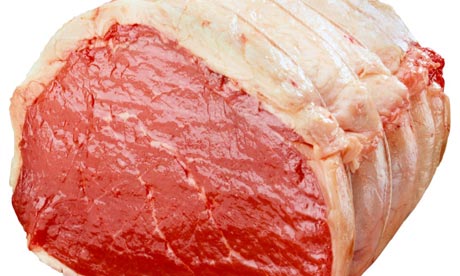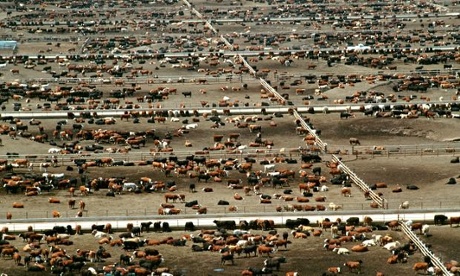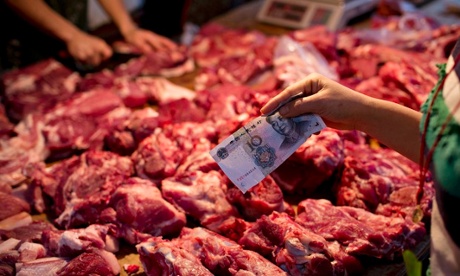People should have one meat-free day a week if they want to make a personal and effective sacrifice that would help tackle climate change, the world's leading authority on global warming has told The Observer
Dr Rajendra Pachauri, chair of the United Nations Intergovernmental Panel on Climate Change, which last year earned a joint share of the Nobel Peace Prize, said that people should then go on to reduce their meat consumption even further.
His comments are the most controversial advice yet provided by the panel on how individuals can help tackle global warning.
Pachauri, who was re-elected the panel's chairman for a second six-year term last week, said diet change was important because of the huge greenhouse gas emissions and other environmental problems - including habitat destruction - associated with rearing cattle and other animals. It was relatively easy to change eating habits compared to changing means of transport, he said.
The UN's Food and Agriculture Organisation has estimated that meat production accounts for nearly a fifth of global greenhouse gas emissions. These are generated during the production of animal feeds, for example, while ruminants, particularly cows, emit methane, which is 23 times more effective as a global warming agent than carbon dioxide. The agency has also warned that meat consumption is set to double by the middle of the century.
'In terms of immediacy of action and the feasibility of bringing about reductions in a short period of time, it clearly is the most attractive opportunity,' said Pachauri. 'Give up meat for one day [a week] initially, and decrease it from there,' said the Indian economist, who is a vegetarian.
However, he also stressed other changes in lifestyle would help to combat climate change. 'That's what I want to emphasise: we really have to bring about reductions in every sector of the economy.'
Pachauri can expect some vociferous responses from the food industry to his advice, though last night he was given unexpected support by Masterchef presenter and restaurateur John Torode, who is about to publish a new book, John Torode's Beef. 'I have a little bit and enjoy it,' said Torode. 'Too much for any person becomes gluttony. But there's a bigger issue here: where [the meat] comes from. If we all bought British and stopped buying imported food we'd save a huge amount of carbon emissions.'
Tomorrow, Pachauri will speak at an event hosted by animal welfare group Compassion in World Farming, which has calculated that if the average UK household halved meat consumption that would cut emissions more than if car use was cut in half.
The group has called for governments to lead campaigns to reduce meat consumption by 60 per cent by 2020. Campaigners have also pointed out the health benefits of eating less meat. The average person in the UK eats 50g of protein from meat a day, equivalent to a chicken breast and a lamb chop - a relatively low level for rich nations but 25-50 per cent more than World Heath Organisation guidelines.
Professor Robert Watson, the chief scientific adviser for the Department for Environment Food and Rural Affairs, who will also speak at tomorrow's event in London, said government could help educate people about the benefits of eating less meat, but it should not 'regulate'. 'Eating less meat would help, there's no question about that, but there are other things,' Watson said.
However, Chris Lamb, head of marketing for pig industry group BPEX, said the meat industry had been unfairly targeted and was working hard to find out which activities had the biggest environmental impact and reduce those. Some ideas were contradictory, he said - for example, one solution to emissions from livestock was to keep them indoors, but this would damage animal welfare. 'Climate change is a very young science and our view is there are a lot of simplistic solutions being proposed,' he said.
Last year a major report into the environmental impact of meat eating by the Food Climate Research Network at Surrey University claimed livestock generated 8 per cent of UK emissions - but eating some meat was good for the planet because some habitats benefited from grazing. It also said vegetarian diets that included lots of milk, butter and cheese would probably not noticeably reduce emissions because dairy cows are a major source of methane, a potent greenhouse gas released through flatulence.







